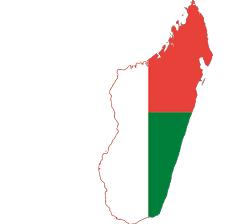4.7.2.2 Joint policy and political dialogue
In Zimbabwe, TEI members decided to deepen their TEI mapping exercises extensively, as a first implementation step towards a better common understanding of the TEI components. The mapping information was complemented in order to allow comparative analysis of key results for each TEI component and their level of alignment with the TEI objectives, as well as a review of existing gaps in order to reach these joint objectives. TEI programme- implementing organisations were also interviewed for that purpose. Moreover, the TE group requested the development of a geomapping of TEI components so as to show TE actor presence in the countries, potential areas for synergetic action and areas where actors following a Team Europe approach support was lacking. For the Climate Smart Agriculture TEI, the TEI focal points group tasked a consultant to develop a deep-dive focus on TE-financed programmes in one specific pillar of the JIL – farm advice and service delivery. The aim was to ‘identify lessons learnt / messages that can be brought to the attention of EU partners’ HQs, national decision makers and development partners’. Many implementing partners were interviewed in order to get their feedback.
In Madagascar, the three TEIs serve as the linchpin in the common ‘Team Europe’ approach to addressing the country’s complex challenges, such as demographic changes, climate vulnerabilities and energy transitions. The TEIs, which are designed to implement critical institutional reforms and foster public and private capacity-building, not only embody the operational essence of the strategy but also act as catalysts to EU coordination, giving form (in terms of clear results) to the overarching Joint Strategy. The TEIs have provided a crucial framework for defining EU collaboration around core outcomes and have become the basis for collaboration under the Joint Strategy. Adoption of the TEIs as the basis for wider coordination in a Team Europe approach has enabled the Joint Strategy to become as operational as possible (for example, the logical framework of the Strategy is represented by the logical frameworks of the three TEIs). The TEIs are also the basis for broader coordination, dialogue and communication in a Team Europe approach.
Joint messaging and policy dialogue should be seen as a continuous process, which is firmly embedded in the whole cycle of TEIs, in order to ensure that each dialogue (formal or informal) can be used to build trust, consensus and partnership. To maximise the value of joint messaging and policy dialogue, it is essential to establish clear communication channels between TEI participants, the partner country government and other key stakeholders.
⇒ See Point 1.3.1 in this guidance for more details.
In Nepal, the Green Recovery TEI has benefited from an emphasis on joint messaging and political dialogue that includes non-financial contributors. This builds on the EU Delegation’s strong track record of sector-wide approaches (education), budget support and joint programming as well as other EU initiatives, such as the Erasmus Mundus scholarship programme and other networks. The joint approach amplifies the EU’s influence within the Development Partners Group and the Nepali government. It offers both efficiency and visibility gains, particularly in a context in which not all EU countries maintain a presence in Nepal and the EU’s presence as a whole is overshadowed by the significant influence of China and India. The TEI’s communication strategy capitalises on existing successful EU initiatives and builds partnerships with international financial institutions (IFIs) and other multilateral organisations.
In Zimbabwe, the actors following a Team Europe approach decided, in line with their working better together roadmap and under the coordinating lead of the EU delegation, to jointly draft sector briefs (‘fiches’) for key areas of high shared interest (including one of the TEI priority areas, Climate-Smart-Agriculture) to be used during their day-to-day policy dialogue. The briefs include key messages from actors following a Team Europe approach to the government. They also include a short analysis of sector challenges, EU development partner engagement and interests, the proposed strategic approach and a list of agreed next steps/activities. For the high-level political dialogue around the two TEIs, it was decided to draft a short version of the brief – a one-page narrative that includes a short sector-situation analysis, the key TEI messages and an overview of TEI objectives and financial envelopes. Heads of Missions of actors following a Team Europe approach were encouraged by the EU Head of Delegation to use these narratives within their own political dialogue.



